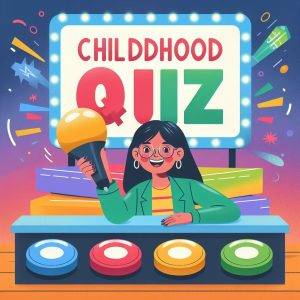Childhood experiences shape our identities and influence our emotional landscapes in profound ways. Often, we carry unseen scars from these formative years, impacting our relationships, self-esteem, and overall well-being. Understanding these wounds is the first step towards healing and growth. Enter the Childhood Wounds Quiz, a tool designed to shed light on the hidden echoes of our early years.
Unearthing the Past: The Childhood Wounds Quiz delves into various aspects of our upbringing to uncover potential sources of emotional distress. It prompts introspection into family dynamics, parental behaviors, and personal experiences during childhood. Questions may range from inquiries about parental affection and support to instances of neglect or emotional abuse.
Identifying Emotional Patterns: Through the quiz, individuals can recognize recurring emotional patterns that stem from childhood wounds. These patterns may manifest as fear of abandonment, difficulty in trusting others, or chronic feelings of inadequacy. By pinpointing these underlying issues, participants gain insight into their emotional triggers and reactions.
Navigating Complex Relationships: Childhood wounds often influence how we engage with others in relationships. Whether it's seeking validation, avoiding conflict, or struggling with intimacy, our past experiences shape the way we interact with partners, friends, and colleagues. The quiz prompts reflection on relationship dynamics, offering clarity on areas that may require attention or healing.
Healing Through Awareness: Awareness is the cornerstone of healing. By acknowledging the existence of childhood wounds and their impact on our lives, individuals can begin the journey towards healing and self-compassion. The quiz serves as a catalyst for this process, encouraging participants to confront difficult truths and embrace vulnerability as a pathway to growth.
Breaking the Cycle: One of the most powerful outcomes of taking the Childhood Wounds Quiz is the opportunity to break the cycle of generational trauma. By recognizing unhealthy patterns inherited from past generations, individuals can make conscious choices to foster healthier relationships and create a nurturing environment for future generations.
Seeking Support: While self-reflection is a crucial step, it's essential to remember that healing doesn't happen in isolation. Seeking support from trusted friends, family members, or mental health professionals can provide invaluable guidance and validation along the healing journey. The quiz can serve as a conversation starter, facilitating open dialogue about shared experiences and mutual support.
Embracing Self-Compassion: Healing from childhood wounds requires self-compassion and patience. It's essential to acknowledge that healing is not linear and may involve setbacks along the way. The quiz encourages individuals to practice self-care and kindness towards themselves as they navigate the complexities of their emotional landscape.
Moving Forward with Empowerment: Armed with newfound awareness and insights gained from the childhood trauma quiz, individuals can reclaim their power and rewrite their narratives. By embracing their vulnerabilities and honoring their inner child, they pave the way for a future defined by resilience, authenticity, and emotional freedom.






Comments